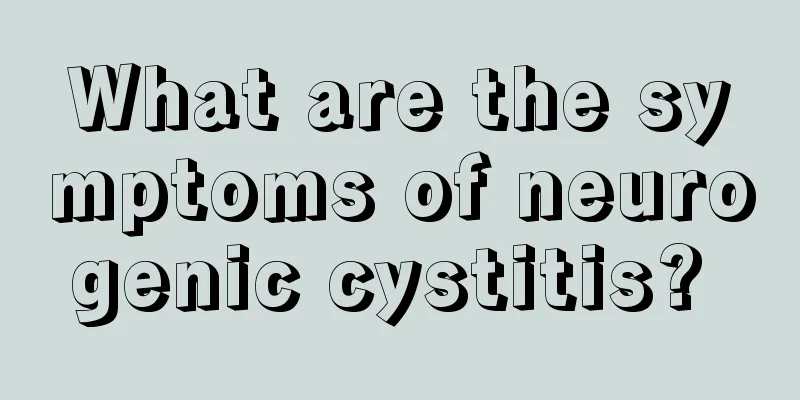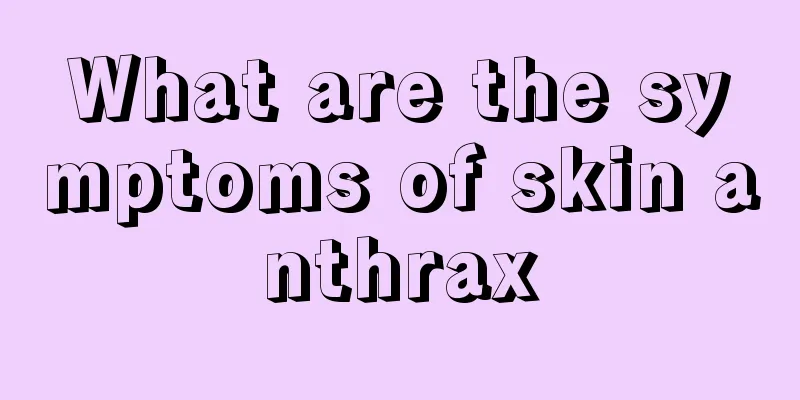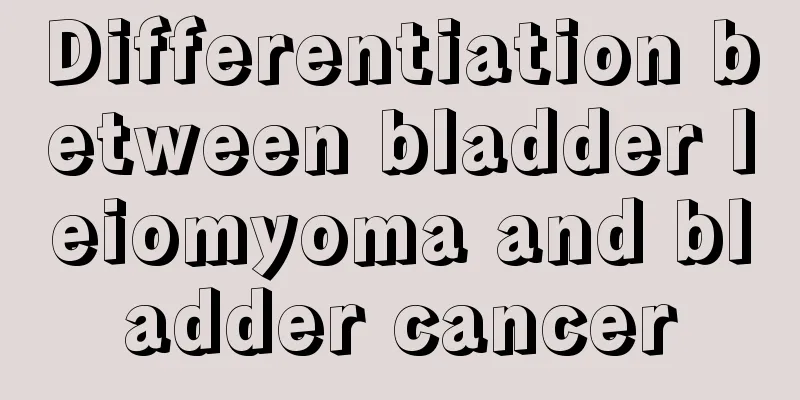What are the symptoms of neurogenic cystitis?

|
The health of the urinary tract is a vital part of people's body, because the urinary tract includes organs such as the bladder and kidneys, which is a highly related system. Urinary tract diseases are an important factor affecting people's health. For example, neurogenic cystitis is a relatively rare disease that has a great impact on patients. Let's take a look at the symptoms of neurogenic cystitis. The bladder is highly resistant to bacteria. It is also difficult for bacteria to enter the bladder, and even if they do, they will be excreted from the body with urine and will not cause infection. However, when there is an upper urinary tract infection, lower urinary tract obstruction, or reduced bladder resistance, the bladder mucosa is easily infected, which can damage the nerves, cause bladder dysfunction, and lead to symptoms of neurogenic cystitis such as spasms. Clinical manifestations 1. Urogenital system symptoms (1) Lower urinary tract symptoms: including urinary urgency, frequent urination, nocturia, urinary incontinence, enuresis, dysuria, incomplete bladder emptying, urinary retention and dysuria. (2) Symptoms of sexual dysfunction: sensitivity in the genital area, erectile dysfunction, abnormal orgasm, abnormal ejaculation, decreased libido, etc. 2. Other symptoms In addition to urination symptoms, there may be intestinal symptoms, nervous system symptoms, etc.: constipation, fecal incontinence, decreased or loss of perineal sensation, limb paralysis, etc. 3. Non-surgical treatment (1) Catheterization Whether for the purpose of promoting urine storage or urination, intermittent catheterization can effectively treat neuromuscular urination dysfunction, avoid the pain of long-term catheterization or even suprapubic cystostomy, and create conditions for further treatment (bladder augmentation, continent urinary diversion). (2) Auxiliary treatment: ① Empty the bladder regularly; ② Pelvic floor muscle training; ③ Training the "trigger point" for urination; ④ Use of an external urine collection device for men. (3) Drug treatment ① Drugs for treating detrusor overactivity, such as M receptor blockers. ②Drugs for treating detrusor muscle weakness, M receptor agonists. ③Drugs that reduce bladder outlet resistance, such as α-receptor blockers. ④Drugs that increase bladder outlet resistance: α receptor agonists. ⑤Drugs that reduce urine production, such as desmopressin. ⑥Other drugs. (4) Acupuncture therapy: Acupuncture is effective in treating sensory paralysis bladder caused by diabetes, especially in the early stages of the disease. |
<<: What are the symptoms of neuromuscular pain?
>>: Is there any specific medicine for neuralgic toothache?
Recommend
What are the early symptoms of gastric cancer?
What are the early symptoms of gastric cancer? Th...
What is Big Three Yang
"Big Three Yang" is very familiar to so...
Drinking polluted water is a risk factor for liver cancer
As early as the 1970s, medical workers in my coun...
What can a barium meal test reveal? Can a barium meal test reveal stomach cancer?
Gastric cancer is also called gastric adenocarcin...
What to eat to prevent primary liver cancer? Eating this fruit regularly can prevent primary liver cancer
Can eating fruits regularly prevent liver cancer?...
What are the benefits of eating dry tea leaves
There are many kinds of tea, and different kinds ...
Do you know these facts about manic depression
Manic-depressive disorder is a mental illness cha...
What should I do if laundry detergent gets into my eyes?
Washing powder is extremely convenient to use. Yo...
Three major symptoms of ovarian granulosa cell tumor
The patient was 27 years old, female. She suddenl...
How long can you live if lung cancer metastasizes to the brain
How long can you live if lung cancer metastasizes...
What is the cause of gastric cancer
Among gastrointestinal diseases, gastric cancer i...
Colon cancer can be diagnosed through X-ray examination
The symptoms of colon cancer are generally mild o...
What is the reason for occasional blood in stool
Blood in the stool is a phenomenon that many peop...
Five types of women should be alert to cervical cancer
In recent years, cervical diseases have directly ...
Preoperative preparation for laparoscopic rectal cancer surgery
Laparoscopic rectal cancer surgery can relieve pa...









